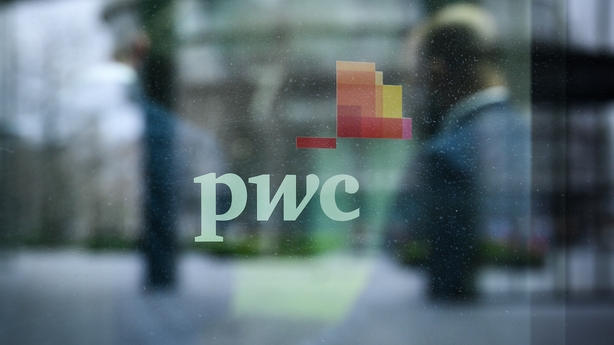Business leaders continue to recognise Generative AI's potential to benefit their organisations, with over three-quarters expecting GenAI to have a positive impact on the economy in the years ahead.
That's according to the results of PwC Ireland's latest GenAI Business Leaders Survey.
It found that 83% of business leaders expect GenAI to have a positive or transformative impact on their businesses in the next five years, up from 74% last year.
The positive impacts include increased efficiencies in their employees time at work (88%); significantly change the way their organisation will create and deliver value (83%), increased efficiencies in their own time at work (79%) and improve the quality of their organisation’s products and services (65%).
However, only about 1 in 4 organisations can point to realised operational efficiencies as a result of AI and GenAI initiatives.
The report revealed evolving views of the macroeconomic impact of GenAI on jobs. While the majority (55%) of respondents are of the view that there will be an increase or no net impact on jobs as a result of GenAI, this is down from 83% reported last November.
The survey further reveals that nearly half (46%) of business leaders do not plan to use GenAI to address labour shortages or increase workplace automation, down from 70% reported last year.
Respondents to the survey said that GenAI will require most workforces to develop new skills (65%), up from 60% in PwC’s latest Irish CEO survey launched in January 2024.

Six out of ten respondents reported to be planning to appoint a dedicated head of AI across the business, up from 37% last year.
The pace of full scale AI adoption, however, remains low but a marked increase in the level of piloting and testing indicates a surge can be expected in the years ahead.
Companies are realising the scale and complexity of AI implementation - just 7% reported to have widespread or full adoption of AI technologies right now in their business operations and that figures has not changed since last November.
At the same time there is significant innovation and activity afoot to enable a surge in AI adoption in the years ahead.
For example, 86% of survey respondents confirmed that they are either at the early stages of exploration, testing or partial implementation stages of AI adoption, up from 54% last year.
Many organisations are realising the opportunities that AI and GenAI can bring and are looking to embed the technologies into their business operations but are also realising it takes time and can be a complex process.
Key uses for GenAI in the next 12 months will be cyber defence (34%), IT development (22%), improving collaboration (17%), sales and marketing (12%) and enhancing supply chains (10%).
We need your consent to load this rte-player contentWe use rte-player to manage extra content that can set cookies on your device and collect data about your activity. Please review their details and accept them to load the content.Manage Preferences
"2024 is definitely a 'moving year' for Irish organisations in relation to AI," said David Lee, PwC's Chief Technology Officer. "While the number of fully deployed solutions remains low there has been a marked increase over the last six months in organisations who are testing or piloting AI tools.
"This increase in activity levels also highlights the importance of having the appropriate governance in place to safely deploy AI related technologies," he said. "While there is evidence that more organisations have plans in place to address this, there is more work to be done to give effect to these plans. This will be increasingly important in the context of the new EU AI Act."
Aisling Curtis, Market Leader for Strategic Alliances, PwC Ireland, said in the PwC GenAI Business Centre, they are seeing a hive of activity and innovation taking place so they can expect the adoption of AI technologies to accelerate in the future.
"AI and GenAI technologies are a great opportunity to disrupt business models and improve productivity.
"However, it will be important that processes are in place to ensure proper value and return on investment is obtained from AI and GenAI initiatives and the survey highlights that there is still significant work to be done in this area."
She said to maximise the benefits of AI and GenAI, organisations need to support their employees to ensure that they have the relevant skills, as well as being AI literate under the new EU AI Act.
"As GenAI becomes more mainstream and part of the standard skill set, upskilling initiatives should be incorporated into organisations’ learning and development plans. Constant learning and relearning will be important."
An overwhelming majority (91%) of Irish business leaders believe that GenAI will increase cybersecurity risks in the year ahead.
The survey further reveals that GenAI is expected to increase other risks such as legal liabilities and reputation risks (79%), the spread of misinformation (74%) and bias towards specific groups of customers or employees (59%).





